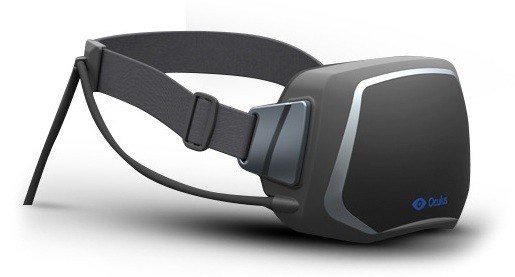The concept of virtual reality is nothing new. Rudimentary systems were around 15 years ago where you'd stumble around in a blocky, 3D universe and shoot blocks at other blocks.
It never really went anywhere, despite some ingenious ideas for truly immerse entertainment. One developer even came up with a round cage on rollers that you could walk around in, moving your character, while you wore a helmet to see the virtual world around you. Other sensors would follow your head and the gun you were holding. It was a good system, but probably prohibitively expensive and, again, it never really went anywhere.
Still, people want immersive. So much so that when the Oculus Rift system popped up on Kickstarter it was fully funded within the first week and received 974 per cent of the funding it required — a total of $2.4 million that put the kits, which are still in prototyping, into the hands of 10,000 game developers, along with a copy of Doom 3 that was optimized for the 3D, motion sensing goggle system. With that kind of buy-in, virtual reality is assured — it's no longer a question of if and how, it's a question of when. It's finally going somewhere.
The major drawback of previous VR systems is that games had to be created to use it while the Oculus Rift (www.oculusvr.com) can immerse you in mass-produced, first person games with a few minor tweaks to the control scheme. Essentially, it adds another axis of control — typically with a first person video game the left joystick controls your movement while the right controls your view or aims the crosshairs/reticle of whatever weapon you're holding. The Oculus Rift adds another dimension where you can move your head around separately to your crosshairs. Games don't have to be 3D, but they can be — the screens embedded in either side of the Oculus Rift are apparently quite amazing — and reviewers at a handful of expos have been blown away. And that's with low resolution screens, the 720p curved screens will be in the next round of prototypes released early next year.
The first version doesn't have built-in headphones, but that's probably the next step — 3D sound where you can hear things sneaking up behind you, or the volume of things changes depending where you point your head.
Right now the Oculus Rift is a developer toy, although the final hardware will be available for computers and consoles probably in 2014 — or possibly earlier if other companies with deep pockets step in to partner with the Oculus Rift's creators. Given that many games will only need to be tweaked to work with the goggles, there's a good chance that there will be a lot of compatible launch titles — and a lot of patches for existing games — available when these things come out.
Halo 4 details coming clear
Halo 4 is actually the sixth entry in the Halo catalog when you include the strategy title Halo Wars and the Halo: Reach prequel, but that's not what matters this time around. What matters is the fact that the Xbox-only vehicle is in the hands of a different studio, 343 Industries instead of Bungie, and it's going to be a little different when it hits stores on Nov. 6.
While some Halo fans wring their hands and worry, 343 Industries has been releasing a few glimpses of the game that look promising. They've rebalanced the weapons for multiplayers, changed the aesthetic slightly, delved into level design to emphasize problem solving and stealth on some missions, revived the sandbox feel of the original Halo, and added a few new multiplayer modes — including Grifball, a football-inspired variation created by a fan using Halo 3's "Forge" tools — incredible match and level-creating capabilities. Halo 4 is intended to be the first title in a new trilogy.
The original Halo and then Halo 2 redefined the modern first person shooter and multiplayer game for consoles, spurring dozens of copycat games that all have that distinctive "Halo" feel. But everything gets old after enough time, and a reboot is exactly what this series needed — what all series (Call of Duty, Battlefield, Gears of War, etc.) need.
For more, visit halo.xbox.com/halo4/.
Songza has a playlist for you
Whether you download the app or tune into the website, Songza (www.songza.com) is attracting a lot of attention recently with "professionally" assembled playlists for every music taste available.
I'm actually impressed. While the playlists aren't always great or accurate — the Talking Heads' "Once In a Lifetime" from 1981 was included in a 1990s one hit wonder compilation! — the sound quality is good and the collection of songs can be great. If you don't like a song, just press fast forward to skip it.
Songza also makes the most of social networks, making it easy to share playlists with friends on Twitter or Facebook.
Try it out. It will literally cost you nothing and is guaranteed to expose you to new music, or remind you about some music you've forgotten.




